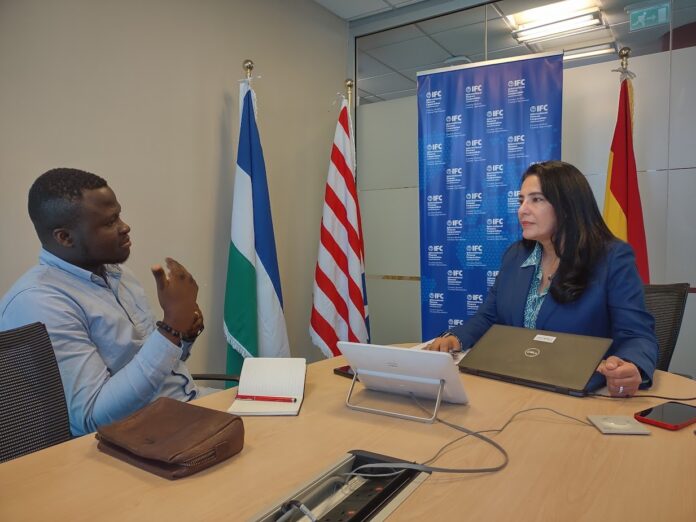
The International Finance Corporation (IFC) has invested over US$100million in the economy within the first two months of its fiscal year, starting in July 2023, with further long-term commitmentS to job creation and sustainability.
IFC’s dedication to the country’s economic growth is aimed to support manufacturing, export growth and ultimately increased job opportunities in addition to sustainability efforts and gender diversity, reinforcing Ghana’s reputation as an appealing destination for investors.
Speaking exclusively to the B&FT in Accra, Dahlia Khalifa, IFC’s Regional Director for Central Africa and Anglophone West Africa, expressed her enthusiasm for the burgeoning opportunities in Ghana and the positive impact of IFC’s investments.
Over the past decade, IFC’s investments in the country have totalled approximately US$1.2billion – including commitments of US$244million since the onset of COVID-19. Currently, IFC’s investment portfolio in Ghana stands at US$467million.
“I came to Ghana filled with excitement to explore the opportunities and witness the difference IFC has been making,” Ms. Khalifa remarked, adding: “I was impressed by the active business community, increasing opportunities and growing competitive advantage regionally and globally”.
Ms. Khalifa said she witnessed tangible results from IFC’s investments in three businesses with over 10,000 jobs expected to be created, particularly in the textile, apparel and fast-moving household goods sectors. She particularly singled out the contributions of companies like Sunda and DTRT, which promote gender diversity and social inclusion; thus aligning with IFC’s values.
Discussing IFC’s investment strategy, she reiterated the importance of partnerships with growth-focused businesses that generate employment and impact their communities positively. IFC’s focus extends beyond specific sectors to consider the broader societal impact of their funding.
The Regional Director also emphasised the wealth of opportunities in Ghana, ranging from addressing infrastructure gaps to advancing digital technologies, boosting manufacturing, supporting SMEs and expanding agricultural businesses.
Sustainability is a central focus for IFC, as Ms. Khalifa emphasised: “Sustainability is not just a moral imperative; it’s a strategic necessity in today’s business landscape”.
She discussed initiatives like green building projects and enhancing women’s increased access to formal employment opportunities, which benefit both society and businesses.
Looking into the future, Ms. Khalifa affirmed IFC’s enduring commitment – stating that her outfit remains a steadfast partner through all circumstances. The lessons learned from the COVID-19 pandemic – such as the importance of digitalisation, pharmaceutical accessibility, and food security, have opened up diverse business opportunities in regions where IFC operates.
In terms of gender diversity and social inclusion, she outlined IFC’s evaluation criteria while underscoring the significance of businesses aligning with these principles. Initiatives like ‘She Wins Africa’ and collaborations with entities like DTRT and the Ghana Stock Exchange play a vital role in promoting these objectives, she noted.
As Khalifa concluded the interview, she expressed optimism about Ghana’s investment climate, asserting: “Ghana presents an increasingly attractive investment profile, with numerous attractions for domestic and international investors. It possesses abundant resources, a strategic geographical location and access to regional and global markets. The outlook for businesses in Ghana is positive”.









